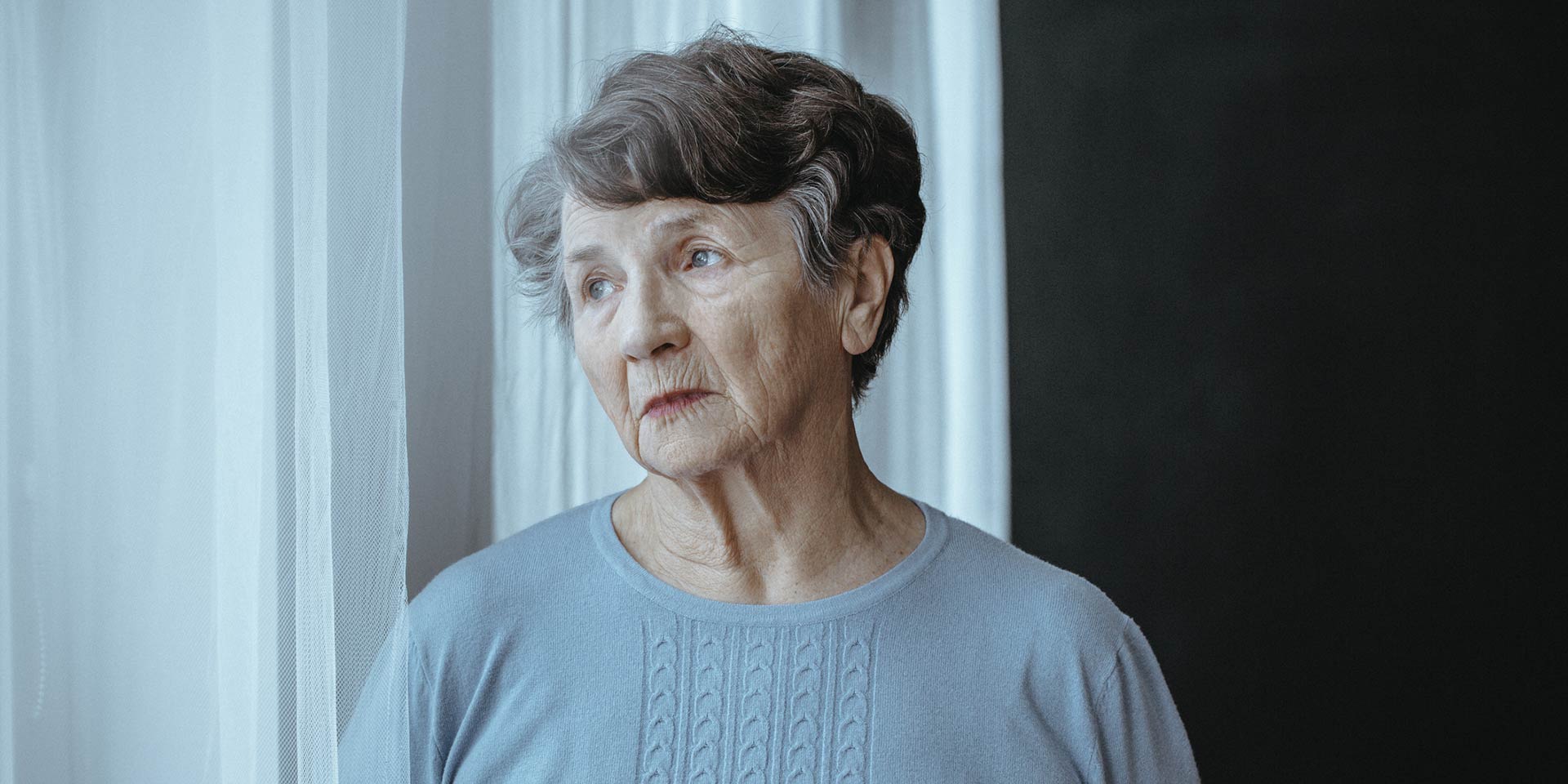“It isn’t the man I married. It isn’t the man I knew.” This is how Sabina Shalom, whose husband was diagnosed with Alzheimer’s disease, begins her confession. The woman, who has reached a respectable age, says that it all started with some serious quarrels between her and her husband: “Papers were lost, bills were not getting paid.”
Eventually, they realised that something might be wrong and went to a neurologist. The doctor told them that the source of forgetfulness was not negligence, but illness, and since then, things have taken a different turn. With tears in her eyes, Sabina said that this disease “is so tough, because you don’t know just how it’s going to be. We’re going through a good patch right now. And I have learned a great deal, but it isn’t easy. And sometimes there are things that are said that are hurtful. But you have to realise it’s another person… It is this cruel, cruel disease that is taking over the man that you knew.”
“Can you tell me where we are right now?” the interviewer asks Nancy, an Alzheimer’s patient who is helping develop a video guide to train the caregivers of people with the disease. “As soon as you said that, I got a total blank,” Nancy replies, embarrassed and amused at the same time.
She covers her eyes, in a gesture like that of a child trying to remember. “Okay, where am I? I’m in my house… in… uhm… I was going to say Long Island, that’s where I started from.” The interviewer lends a helping hand: “Let me give you some choices: are we in Philadelphia?” “No.” “Washington?” “No.” “Baltimore?” “Yes.” “Good.” Having choices helps Nancy navigate through the things she already knows, and this strategy will prove very important in order to be able to convey something to those around her.
At the age of 65, Nancy and her husband, Bob, were celebrating their wedding anniversary with a waltz. She radiated, and a smile of charming naturalness brightened up her whole face. He was careful to give her the final pirouette that would make her look as delicate as a ballerina. Five years later, they were still together, but not really. Nancy started to get lost in between fragments of thoughts but she was still jovial and mischievous: “Sometimes I feel sorry for him, that he has to put up with me. But then I think ‘Boy, is he lucky! I’m really nice!'”
Another year passes and Bob, in his old age, can no longer cope with taking care of Nancy. She has long periods of lucidity, but the fact that she has forgotten some basic things makes her completely dependent on outside help because otherwise, she would risk her life. She is getting admitted to a care or “assisted living” centre, as it is named on the institution’s sign. Looking at an old photograph, Nancy makes a painful confession: “That was in the old days… We’re not really in there together, so when I think of that I feel sad because that’s not the way I want it to be.”
Three months later, Nancy is doing recovery exercises after a fall. Bob is close by, watching her work with the physiotherapist. “I think I’m feeling great,” she told a reporter documenting her experience for a film, titled “Bob and Nancy: Inside the Emotions of Alzheimer’s”. In her eyes, however, you can read the emptiness of her words. She is sad, she looks down, and when she tries to formulate her reasons for happiness, she stutters and ends the sentence with a long “Umm”.
Five months later, Nancy is in a hospice. There are no more frowns on her forehead. Bob is sitting on a chair by the bed and holds her hand. No goodbyes spoken now will ever be answered.
The longest goodbye
It’s shocking how many love stories, like Nancy and Bob’s, carry the deep scars left by Alzheimer’s disease, like train tracks marking their pain over their hearts. Someone once said that Alzheimer’s is a transition that requires a lot of courage. They did not specify whether they were talking about the person afflicted by the disease, or those who accompany them on the path of losing themselves. Most likely, it is valid for both. The accessibility of these life stories on the internet stands as a testament to the mobilising and inspiring force of pain.
The battle is not fair, because the enemy is not a fair one. Alzheimer’s just comes to steal what you’ve built for years with your loved ones. There’s no easy battle, as Sabina Shalom used to say, because no matter how strong you are, you can find yourself fighting in vain or on a front where there is no point in fighting.
This is what happened recently when a team of researchers from Oxford discovered that physical exercise, which many looked to in the hope that it could slow the progression of the disease, fails to stop it once it’s installed. The scientists, who published their findings in the British Medical Journal, said they were disappointed with what they discovered.
Professor Sarah Lamb, the coordinator of the research, confessed that she was “disappointed by the results, although [she] probably wasn’t completely surprised”. Lamb, who works at the Nuffield Department of Orthopaedics, Rheumatology and Musculoskeletal Sciences at Oxford University, said that “it would be fair to say that dementia is a difficult problem to fix.”
About 500 patients with dementia (globally, Alzheimer’s disease accounts for between 60% and 70% of dementia cases) volunteered for the experiment led by Professor Lamb. Of these, 329 were integrated into a rigorous exercise program, and 165 remained under their regular care. Those who carried out the exercise programme had four months of personalised physical activity, adjusted based on their fitness, and divided into two sessions of 60-90 minutes each at the gym and one hour at home.

The results showed that the patients in the intensive sports group had nothing to gain from it in terms of neural health. On the contrary. Although their physical condition improved, in the four months they experienced a more pronounced cognitive decline than the non-exercising patients.
However, the complexity of the disease makes it inappropriate to be alarmed about the possible harmful impact of physical activity. Researchers say it would be wiser not to think of sports as medicine, at least not as long as the disease has already set in. There are studies that show that applying healthy lifestyle principles, including exercise, can delay the onset of Alzheimer’s disease. However, once triggered, it cannot be stopped by exercising.
Based on the findings of the study, the authors recommended that the UK Ministry of Health not invest in exercise programs for Alzheimer’s patients, as they do not work as a treatment. However, Dr Brendon Stubbs, a physiotherapist at King’s College London, suggested that the results should not lead to quitting the search for lifestyle interventions that can effectively delay cognitive decline in patients with dementia.
Worldwide, an estimated 50 million people suffer from dementia—a long “goodbye”, said with an echo that multiplies, every year, with another 10 million new cases.
However, these statistics—although they speak of tens of millions of patients and who knows how many tens of millions of relatives—fail to convey the compassion and strength that only the story of someone who is directly involved can convey. Like, for example, this dialogue posted on YouTube between a young woman named Kelly and her mother with Alzheimer’s disease:
– Do you know you’re my mama?
– I’m your mama?
– Yeah.
– Alright, I’ll be your mama.
– Do you think I would lay here with just anybody?
– No. I think you’d have to love them to want to.
– Yeah, you do have to love them to lay down with them like this.
– Yeah.
– And I love you, Mama.
– I love you.
– But do you know who I am, though?
– Uh-huh.
– Who?
– Uh… Kelly.
– (shocked) Yes, Mama, yes. I am Kelly.
– Well, I love Kelly. And didn’t I name you Kelly?
– Yes, you did.
(They both laugh)
– Well, I love you, Kelly.
– I love you, Mama. I thought you… a while ago you didn’t know who I was.
– I know it was something because when I have some fears… I get here and I’m thinking “My Lord, what in the world am I thinking about?”
– You are?
– Yeah.
– What are you thinking about right now?
– Well, I’m loving you.
– I’m loving you too, Mama.
– Oh well, we’re both doing the same thing, aren’t we?
(They both laugh)
– Yeah, we are.
– Oh, isn’t it wonderful?
– Yes, it is.
Beyond the research efforts that have not yet succeeded in producing the results to which scientists devote all their time, the efforts of those who are directly struggling with the disease succeed in advancing on a path that science cannot enter: that of love.
Patient experiences show that, in the end, this is even more valuable than discovering a treatment. And for such a finding, you need enormous courage, the strength to rise from the overwhelming burden of the unknown and to say to the one next to you: “At this moment I love you.” The moment is all that we have anyway, whether we admit it or not. And nothing should stop us from filling it with love. Not even Alzheimer’s.



















